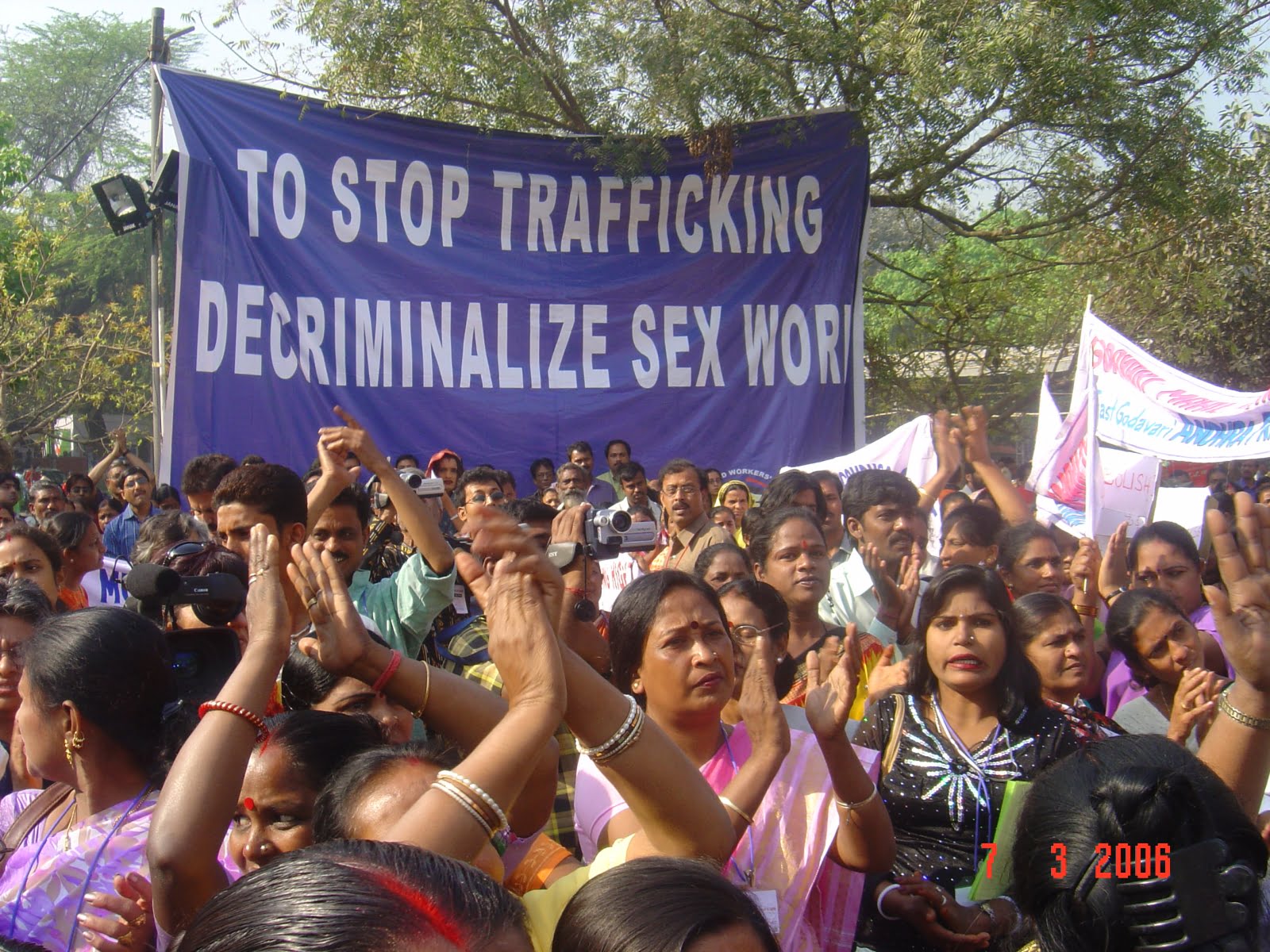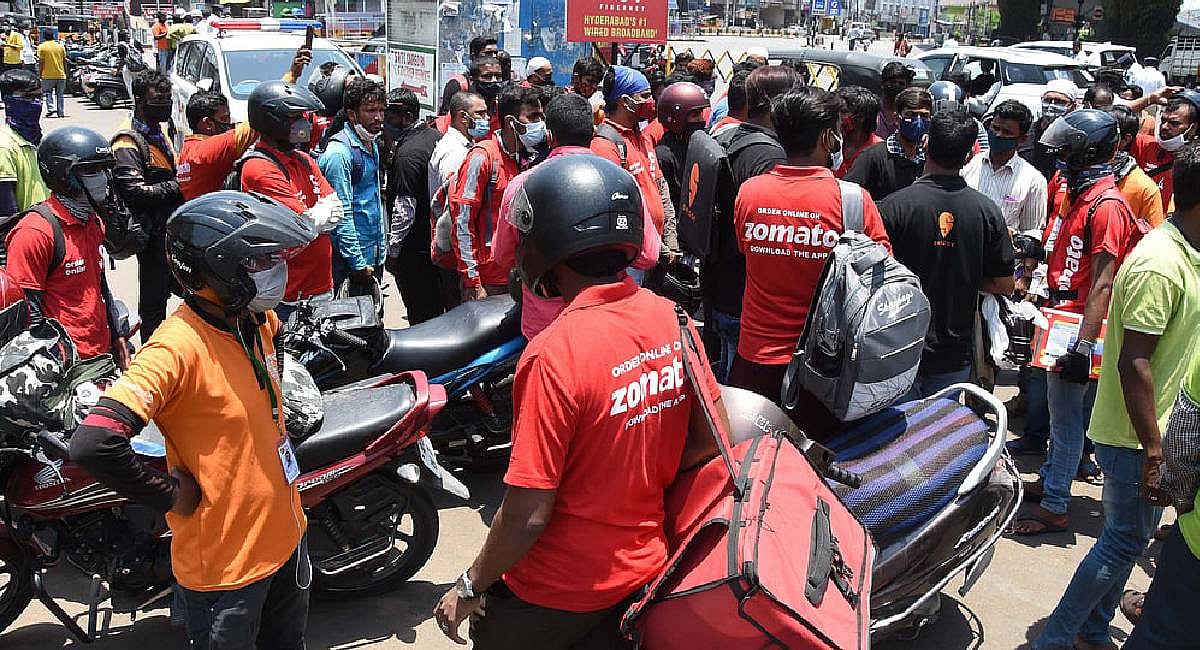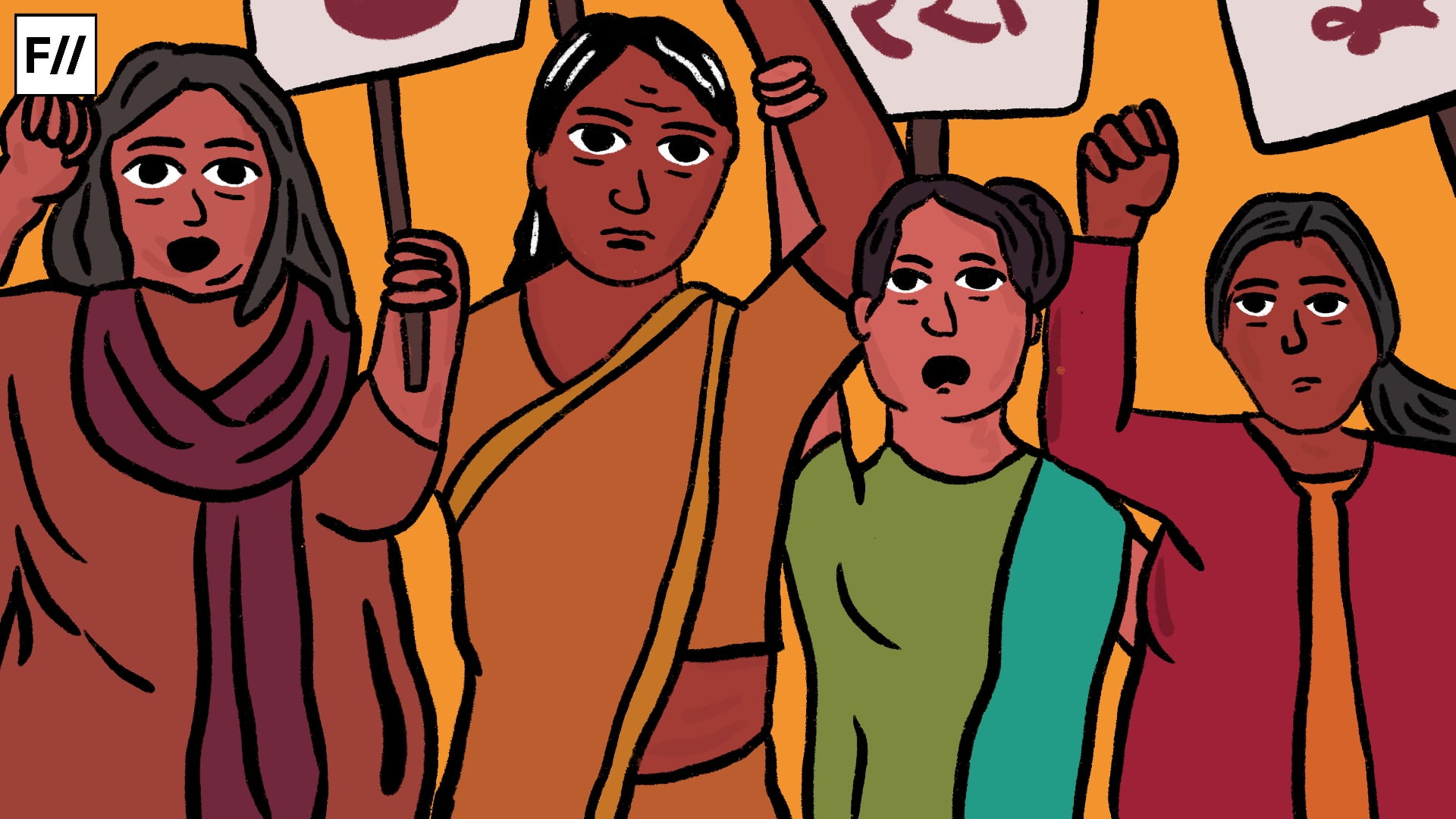Trigger Warning: Rape, Violence and Abuse
“The law that must protect us ends up exploiting us,” said Bisakha Laskar, President of the Durbar Mahila Samanwaya Committee, and a member of the sex worker community, in a conversation with FII. Sex workers have been at the periphery of society for ages. The discussions and attempts to reconnect sex workers to mainstream society are a need. Discrimination against sex workers in India should be treated as seriously as discrimination against any other marginalised groups based on class, caste, gender, or religion.
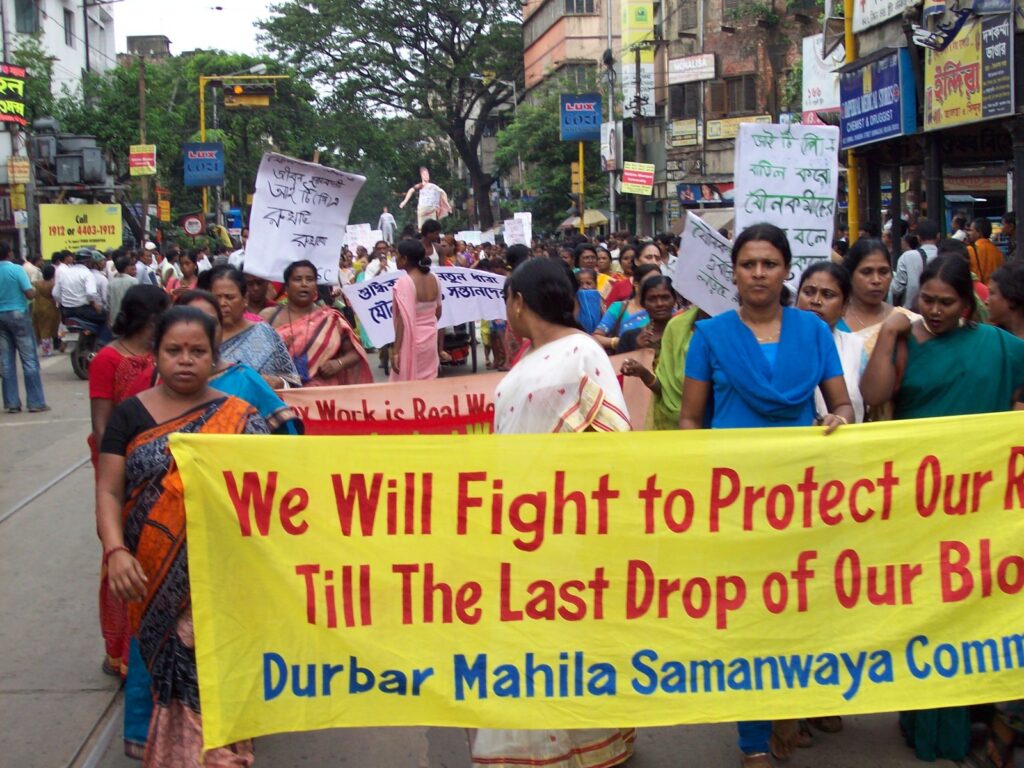
Sex work is a profession, and people’s livelihoods are dependent on it. Even after the Supreme Court has clearly mentioned that sex workers should be treated with respect and the police should not interfere in consensual sex work, instances of violation by the police are not unusual. The police often misuse their power by harassing them or demanding unnecessary monetary compensation from clients, which affects the workers directly. Instances of police violence are not only limited to client harassment.
To criminalise sex work is to marginalise them, and deprive the workers of their civil rights in a country. They were for a long time, even now, denied public healthcare, education, protection, and the freedom to live a respectful life in society. To criminalise sex work is to push them toward becoming more prone to exploitation, abuse, and injustice.
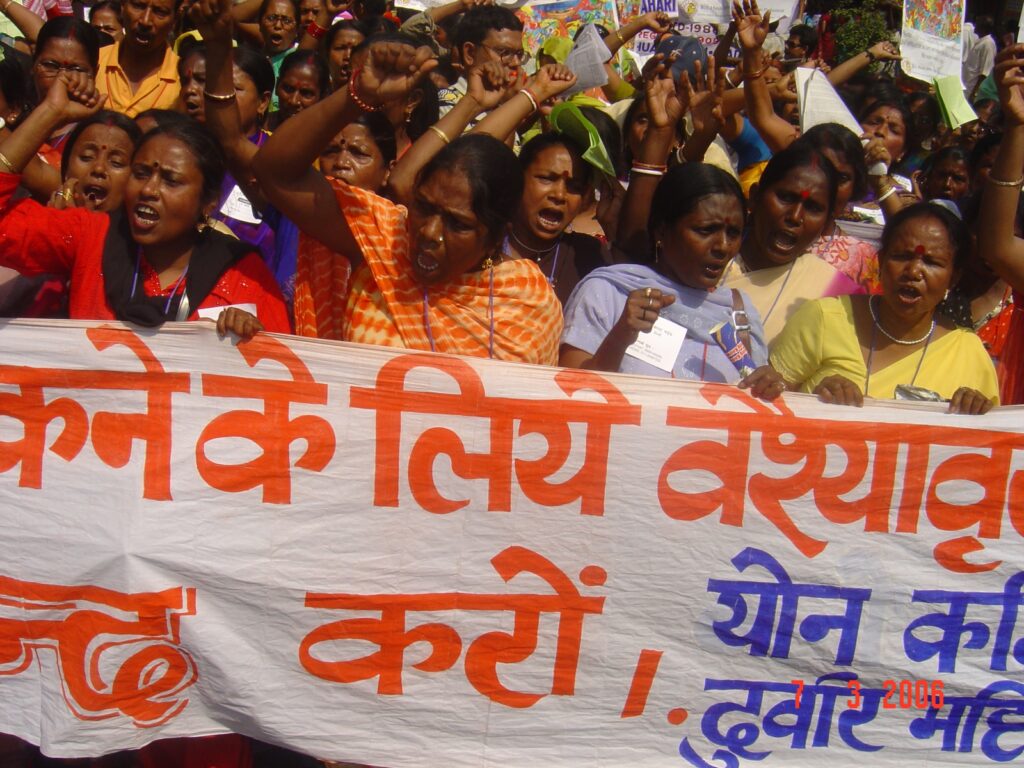
Our understanding of sex work and workers are highly influenced by the media we consume, the content we read, etc., where we are conditioned to look at them through a tainted lens. We tend to assume that they have a certain way of living, dressing, talking, and behaving, different from women belonging to the mainstream society which is controlled by the politically powerful groups . We fail to look at them as equal individuals with dreams and aspirations similar to ours, therefore alienating them from mainstream society and treating them as the “other”.
Also read: Mortality Among Female Sex Workers: Lancet Report Highlights The Need For Comprehensive Healthcare
Inflicting violence on the oppressed is easy, and it happens more when the authority which promises to protect turns into danger. There have been judgments that showed insensitivity towards sex workers. The Supreme Court stated in 2016 that because a sex worker may accuse her customers of rape if they refuse to pay her, the evidence presented by such women should be considered but cannot be considered as the truth which is an instance of the kind of violence sex workers face in the Indian judiciary system.
A woman should have autonomy over her body, any state or third-party intervention is claiming control over that body. The government’s policy on anti-trafficking makes the voluntary sex workers more vulnerable. There is no discrimination between adults and minors in the regulations governing raids and rescues. It has immensely violated the rights of sex workers, making them feel that they have been “arrested” and imprisoned. These are concerns that require immediate judicial attention, however, they have been left out of the Immoral Trafficking (Prevention) Amendment Bill.
As Bisakha Laskar spoke to FII, she mentioned that the most horrid form of resistance or violence comes from the police themselves. Sex work is a profession, and people’s livelihoods are dependent on it. Even after the Supreme Court has clearly mentioned that sex workers should be treated with respect and the police should not interfere in consensual sex work, instances of violation by the police are not unusual. The police often misuse their power by harassing them or demanding unnecessary monetary compensation from clients, which affects the workers directly. Instances of police violence are not only limited to client harassment.
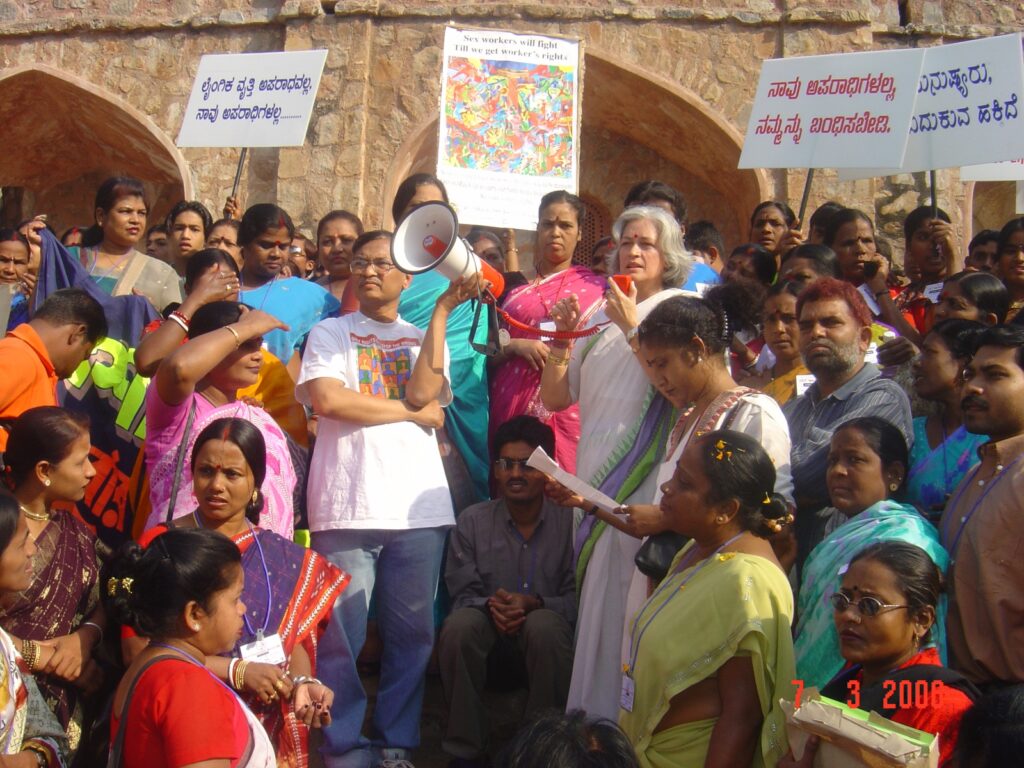
Sex workers are often abused by police, who illegally arrest and torture them. Their rights are often abused when they are detained, breaching the National Human Rights Commission’s standards on detention and incarceration. In instances where sex workers visit the police after being assaulted or mistreated by private parties, the police often deny their right to recourse, refusing to file First Information Reports or investigate the acts of violence. They often raid the brothels and houses of the workers mercilessly. According to a World Health Organization (WHO) survey (2016), 70% of sex workers in India were assaulted by the police, and more than 80% were jailed without proof.
“One can choose any profession of one’s choice. If you are willingly doing something, that cannot be termed as an offence. As an individual and a citizen of the country, if our right to choose rests on the legislature, it curtails our individual freedom of choice. We are the same as any other citizen of our country. We give pleasure in return for money, and this is our profession, like any other service. Why is it considered bad then?”
Bisakha Laskar, President of the Durbar Mahila Samanwaya Committee, and a member of the sex worker community
Ms. Laskar cites a recent example where police raided a brothel in Beharampur needlessly. She says, “If the protector becomes the attacker, who is going to give us protection?” The role of the police as a medium of systematic oppression has remained constant. However, collectives like – Durbar Mahila Samanwaya Committee, to some extent, have been successful in controlling the police violence that was previously done explicitly.
Also read: The Violence Of Not Being Heard: International Day To End Violence Against Sex Workers
Unlike the common idea of sex workers being forced into the profession, a lot of women or transgender individuals voluntarily choose to become sex workers. People’s moralistic view of sex stops them from comprehending sex to be a medium of transaction, as in any other labour or commodity. To not let an individual choose what to do with one’s body is a direct violation of their rights. Feminist critics have discussed sex work as sexual autonomy.
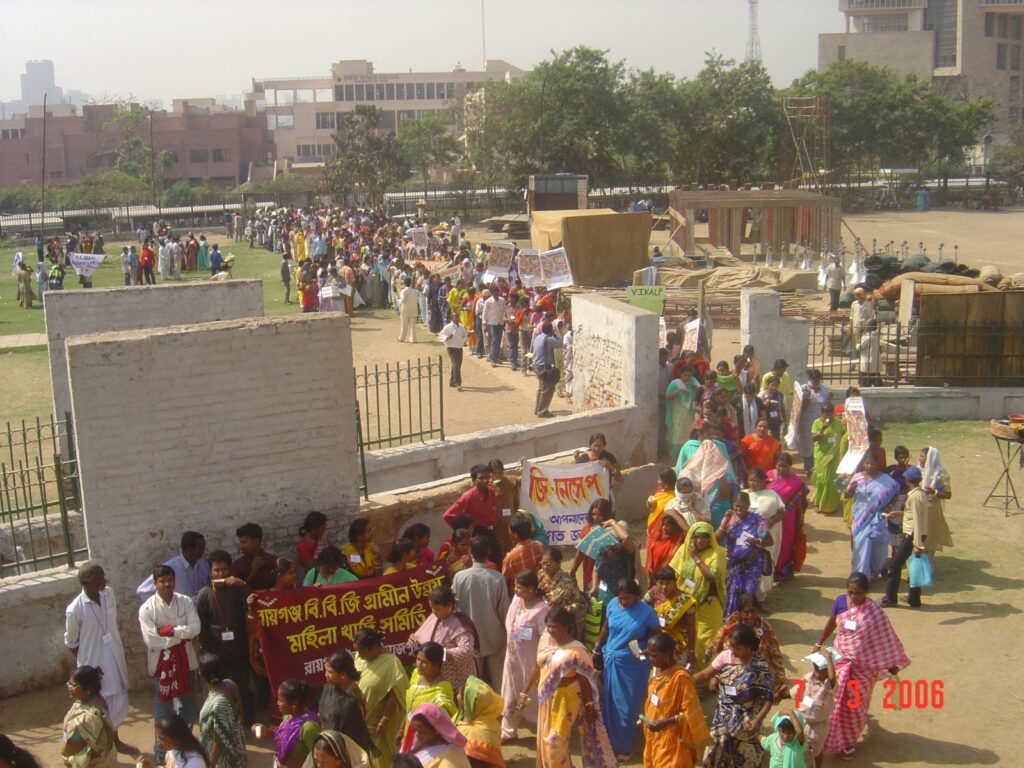
A woman should have autonomy over her body, any state or third-party intervention is claiming control over that body. The government’s policy on anti-trafficking makes the voluntary sex workers more vulnerable. There is no discrimination between adults and minors in the regulations governing raids and rescues. It has immensely violated the rights of sex workers, making them feel that they have been “arrested” and imprisoned. These are concerns that require immediate judicial attention, however, they have been left out of the Immoral Trafficking (Prevention) Amendment Bill.
As Ms. Laskar says, “One can choose any profession of one’s choice. If you are willingly doing something, that cannot be termed as an offence. As an individual and a citizen of the country, if our right to choose rests on the legislature, it curtails our individual freedom of choice. We are the same as any other citizen of our country. We give pleasure in return for money, and this is our profession, like any other service. Why is it considered bad then?”
The work allows them to enjoy a certain financial autonomy that may not be experienced by married women who are forced to do unpaid labour. “We claim our own right. Every woman, irrespective of their status in society, should claim their independence and not succumb to the domination of their male counterparts,” she adds. They can have their own property and assets, with their own hard-earned money.
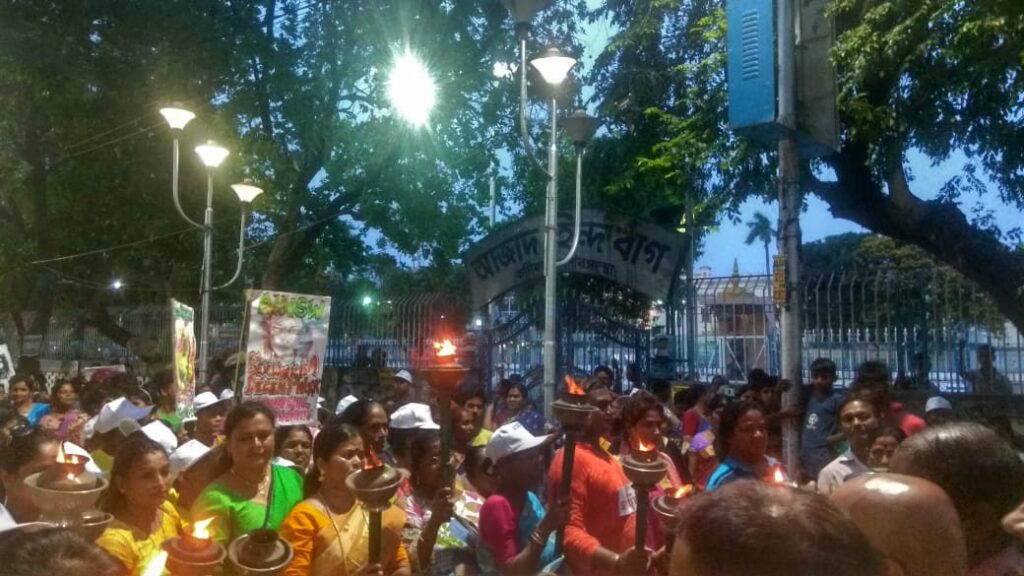
Across India, people are subjected to violence and discrimination because of their sexual orientation or gender identity. People are put at risk just because of their non-heteronormative gender identity. Among the forms of violence include murder, rape, physical assault, and arbitrary imprisonment. When it comes to transgender sex workers, the marginalisation becomes three-fold, where violence such as – sexual assault, rape, harassment, extortion, and abuse from clients and agents, intimate partners, neighborhood citizens, and official authorities are common instances. The abused sex workers have reported that they have been turned away from official health centres on many occasions. Legal remedies and procedures also become a hassle for them. However, Sonagachi has, in recent times, become a better place for transgender sex workers to live and work in.
Violence against sex workers came in many other forms involving non-consensual sex, abduction, refusal of payment, and many more. Women, as in any other sphere of society, were not given a chance to voice their consent or wishes. Hence, the health of the sex workers was always at risk as they could not always get their clients to wear protection. This proved detrimental to their reproductive health, causing sexually transmitted diseases. According to a report by the World Health Organization, violence against female sex workers is widespread and widely tolerated which the legislation and judiciary are unable to protect. Violence is also perpetrated by pimps, clients, family members, and regular partners, increasing the risk of unwanted pregnancies, STIs, and HIV.
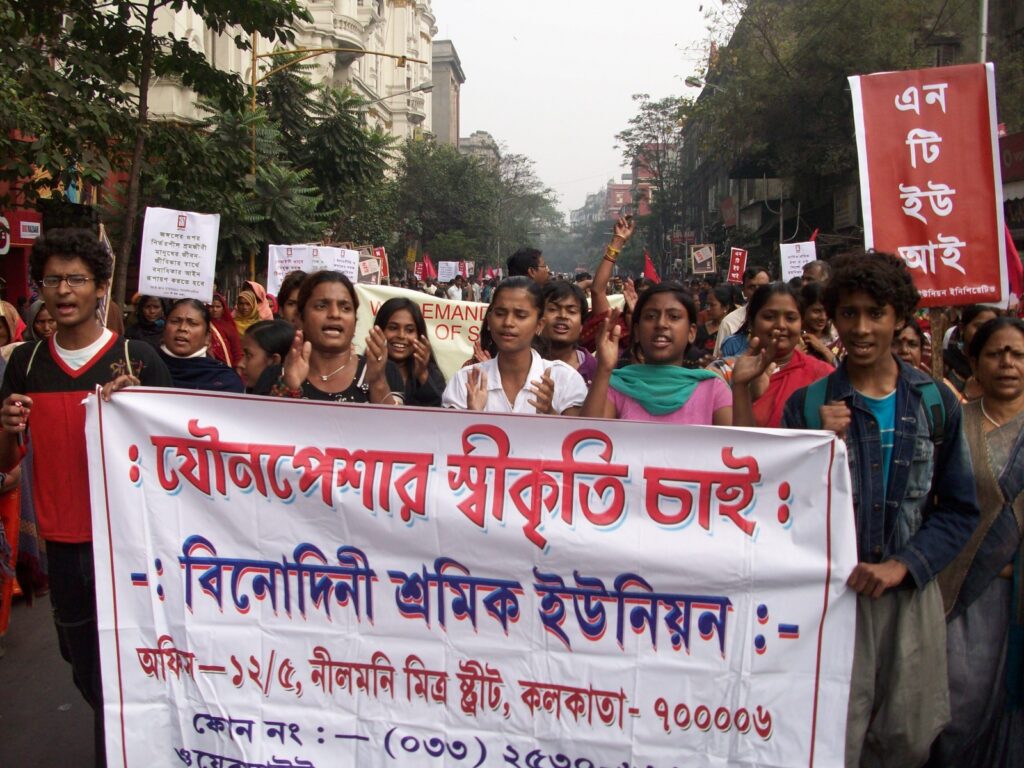
Also read: Sex Workers Of Sonagachi: Social Distancing & Stigma During COVID-19
Durbar Mahila Samanwaya Committee has been intensely working for the protection of the rights and health of the sex workers in Sonagachi, one of the largest red light areas in Asia. The organisation has its branches spread over various districts in West Bengal. They have also worked for the children of sex workers who are deprived of mainstream education and career choices other than their parents’. The committee has been actively working towards giving these children their right to education and proper learning. The fact that the daughter of a sex worker will be a sex worker as well is a myth. Every mother has aspirations for their children, and sex workers are no exception. To force them into the same profession and abuse them for being born in a certain household is violence too.
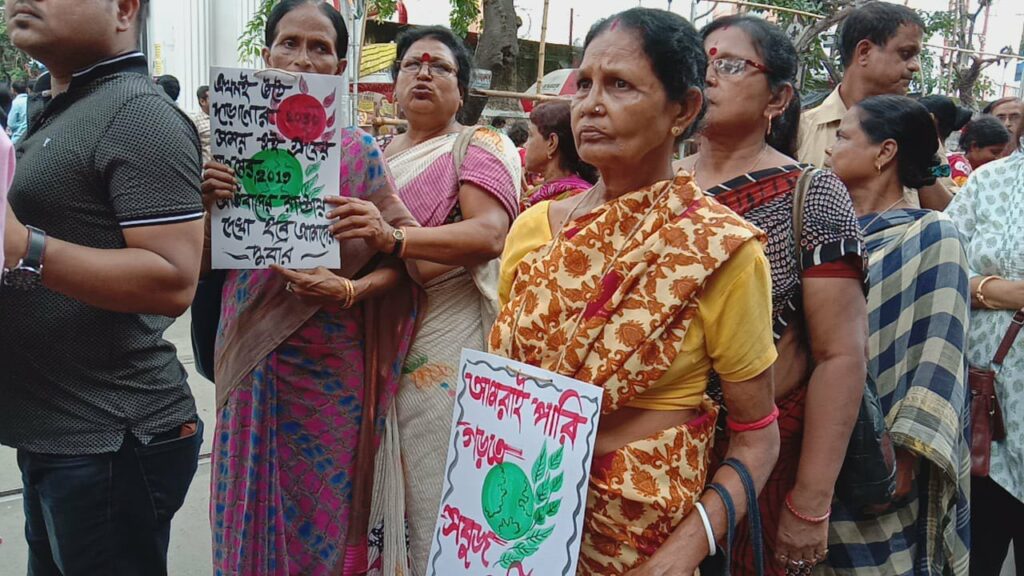
“What will make the situation better is society’s acceptance of the profession,” says Ms. Bisakha Laskar. Sex workers have been an integral part of our history. Sex workers, since ancient times, had a huge role to play in society. Indian culture – dance and music were predominantly influenced by tawaifs. Their position in society fell from grace to oppressed and sinful with time. The voices of the silenced need to be heard and most importantly truly represented to lift back sex workers from the bottom of the hierarchical structure that our society has created.
About the author(s)
Simantini Sarkar is a student, writer, and feminist, as well as a literature and film enthusiast. She has completed her Bachelor’s degree from Bethune College, Kolkata, and her M.A. in English from Savitribai Phule Pune University. She writes for various online and offline magazines and is a budding translator. Simantini is also an aspiring research student. Her interests include topics
related to gender, women, politics, and pop culture.
